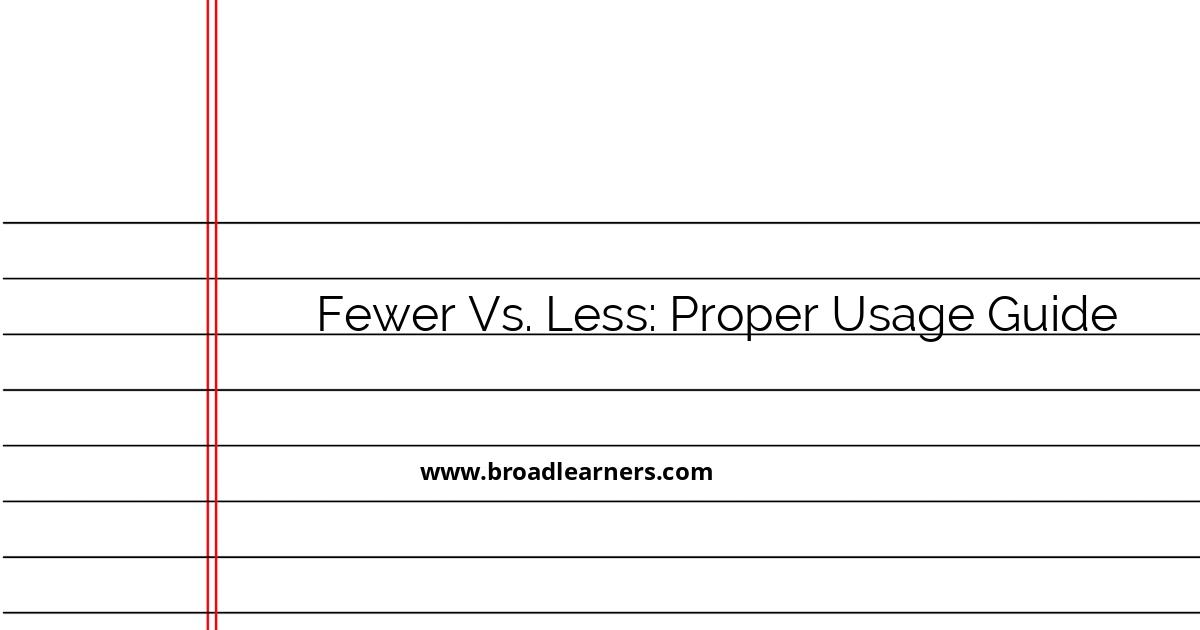The distinction between fewer and less is a common grammar query that often confuses English language speakers. Both terms are used to describe quantities, but they are applied in different contexts depending on the type of noun being modified. Understanding the proper usage of 'fewer' and 'less' is important for writing and speaking with precision and accuracy. In this guide, we'll explore the rules and correct applications of 'fewer' and 'less' with examples.
- Fewer
- 'Fewer' is used with countable nouns—nouns that can be counted as individual units. It is appropriate when referring to things you can easily count one by one.
- Less
- 'Less' is used with uncountable nouns—nouns that represent a whole or a mass that cannot be counted individually. It is suitable for singular mass nouns.
Let's explore some examples to clarify the usage:
Usage of 'Fewer'
-
Example 1: "There are fewer apples in the basket today."
Explanation: Apples are countable (1 apple, 2 apples, 3 apples, etc.), thus 'fewer' is the correct term to use.
-
Example 2: "Fewer students attended the lecture than expected."
Explanation: Students are countable as they can be individually numbered, so 'fewer' is appropriate.
Usage of 'Less'
-
Example 1: "There is less water in the tank than last week."
Explanation: Water is a mass noun and cannot be individually counted, making 'less' the correct term.
-
Example 2: "She showed less interest in the new project."
Explanation: Interest is an abstract noun and not countable; therefore, 'less' is suitable.
However, there are exceptions to these rules that are commonly accepted in English:
Exceptions
- Time and Money: Although time (minutes, hours, days) and money (dollars, euros) are technically countable, 'less' is often used over 'fewer' in certain expressions.
-
Example: "She earned less than $50 last night."
Explanation: Even though dollars are countable, 'less' is traditionally used for amounts of money in standard expressions.
- Measurements: Quantities like distance, weight, and volume, though technically countable, can sometimes employ 'less'.
- Example: "The walk was less than five miles."
By adhering to these guidelines, you can confidently use 'fewer' and 'less' in your writing and speech, ensuring clarity and grammatical correctness. Remember the key principle: 'fewer' for countable nouns and 'less' for uncountable nouns—with some notable exceptions for specific contexts.

Did I miss anything? Respond below